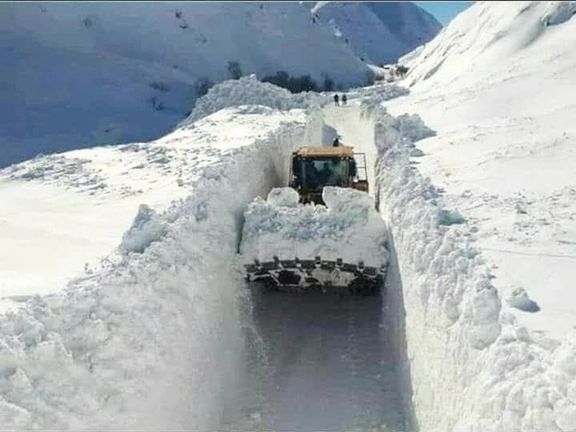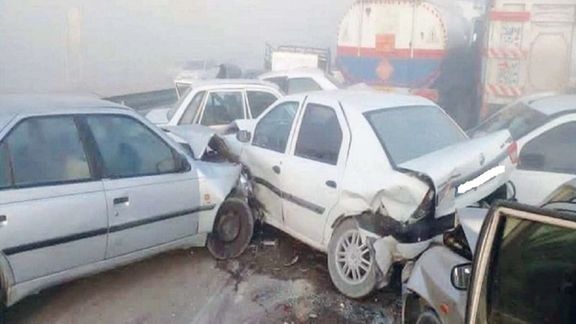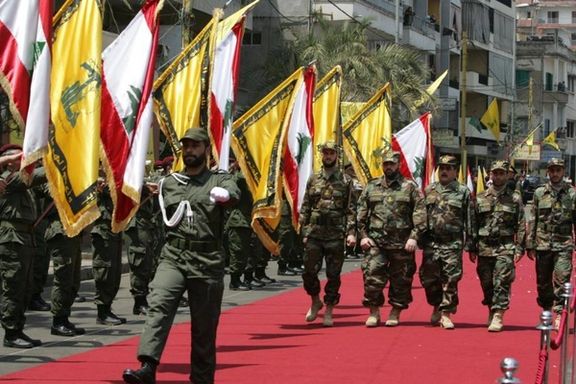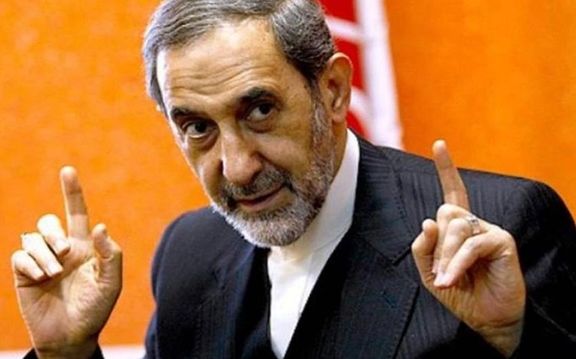After Months Of Drought, Heavy Rain And Snow Wreak Havoc In Iran

Heavy rain and snow after months of drought have led to floods across Iran in the past week, causing deaths and damage to thousands of properties and roads.

Heavy rain and snow after months of drought have led to floods across Iran in the past week, causing deaths and damage to thousands of properties and roads.
According to reports, the southern regions of the country -- in Sistan-Baluchistan, Kerman, Fars and Hormozgan provinces -- are the worst hit by heavy rains, with higher number of casualties and villages that are left without power and surrounded with water.
Heavy snow, unprecedented in recent years, have chocked off mountain passes. Some areas are blanketed with six feet of snow.
Local authorities said on Wednesday that four people, including three children, were killed in floods in Kerman and Hormozgan provinces, dozens of villages were evacuated and access to more than 300 other villages was cut off.
There is no exact number for the casualties as many people are still missing and communication systems are lost in many of the flood-stricken areas, while relief operations are slow and insufficient. ()
Kerman Governor Ali Zeinivand said at a meeting of the province's crisis management taskforce on Wednesday that the situation in many towns and villages was critical as they are besieged by water, and unless precipitation decreases, flooding cannot be controlled.
Officials from different ministries and organizations, including President Ebrahim Raisi and several military commanders, have been paying visits to the people who are living in temporary housings.

Two massive multiple vehicle collisions in Iran’s southwest last week and the failure of the vehicles' airbags has caused public outrage at domestic automakers.
In comments in the days following the tragic accidents, chief of the Road Police Kamal Hadianfar said the airbags of all of the domestically produced vehicles had failed to operate and strongly criticized domestic automakers for the low quality of their products which he called "carriages of death".
Hadianfar demanded authorities to monitor the quality of domestically produced cars and implementation of safety and quality standards and said automakers sell their sub-standard products to people at the price of foreign-made vehicles.
Others, including Farhad Tamasebi, a member of the parliament's Industries and Mines Committee urged the Judiciary to launch an investigation into the failure of the airbags and the resignation or impeachment of the minister of industries.
The remarks of an official of the Automakers Association, Ahmad Nematbakhsh, about the failure of the airbags angered many including another road police official, Eynollah Jahani. Nematbakhsh claimed the airbags had not opened because the "the collisions' had impacted the rear of the vehicles".
"Sixty cars have collided and the airbags of none has opened because all of them were impacted from the rear?" Jahani asked and said automakers should try to improve the safety and quality of their products instead of trying to justify their shortcomings. He pointed out the failure of airbags and explosion of one of the vehicles involved in the collision were not isolated cases. "We witness similar technical defects and safety failures all the times," he said.
Iran has one of the world's worst traffic safety records with annual road fatalities of around 20,000.
Five were killed and tens were injured in the chain collisions on January 10 on the motorway connecting Behbahan and Ramhormoz in Khuzestan province that involved nearly sixty vehicles. Four of the vehicles burned to ashes in the accident.
Iran's quasi-government-owned automotive industry, the county’s largest after oil and gas, employs 700,000. It was valued in 2020 at $26.4 billion by India-based Modor Intelligence. The sector is in debt for billions of dollars and is a large burden for the government and its banks.
Road Police officials have repeatedly warned about inadequate safety standards of domestic cars. Speaking to the Iranian Students News Agency (ISNA) October 22, deputy chief oftraffic police, Taymour Hosseini, said road accidents were occurring due to inadequate safety standards as Iranian companies struggled to keep up with technology. "Big companies in the world are working on intelligent cars but we have dropped our expectations so much that we are happy with having anti-lock braking systems,” he said.
In a commentary Tuesday, the conservative Asr-e Iran news website said domestic automakers that are never held to account for the very low quality and safety standards of their products for many years have endangered the lives of tens of millions of Iranians with their unsafe products and dubbed the January 10 collisions automakers' "Behbahan Gate".
By protecting automakers' interests in many ways including by eliminating foreign competitors, Asr-e Iran said, the governments has become complicit in "murdering" innocent people. French companies
"It doesn't matter if reformists are in power or hardliners. Despite their political differences, when it comes to automakers, the knees [of both factions] give way and they relent [to automakers' wishes] as if they are under a spell," Asr-e Iran wrote and demanded "immediate shutdown" of the production lines of Saipa and Iran Khodro, Iran's two largest automakers, until the problem with airbags in their products is properly fixed.

The United States has sanctioned three individuals and their company with links to Iran-backed Hezbollah for exploiting Lebanon's economic resources for the benefit of the militant group.
The Treasury Department said in a statement on Tuesday that it has sanctioned Adel Diab, Ali Mohamad Daoun, and Jihad Salem Alame, as well as their Travel and Tourism company Dar Al Salam.
The Treasury added that all property owned by the three men and their business that is in the United States is blocked and that any transaction related to them is prohibited.
"Through businessmen like those designated today, Hezbollah gains access to material and financial support through the legitimate commercial sector to fund its acts of terrorism and attempts to destabilize Lebanon's political institutions," read the statement.
Earlier, the UAE asked the US to reclassify another Iran-backed group in the region as a terrorist group.
In a phone call with Secretary of State Tony Blinken, Emirati Foreign Minister Abdullah Bin Zayed requested that the Houthi movement - officially called Ansar Allah - be added to the list of terrorist organizations.
President Joe Biden reversed the Trump administration's decision to designate Houthis as terrorists less than a month after taking office, saying it hampered humanitarian aid to the Yemenis.
The UAE also vowed punishment for the Houthi missile and drone strike on key targets in the country that killed three and injured several others.

An Iranian lawmaker has said that the Islamic Republic should emulate China’s “success” in creating a unique national intranet to control the cyberspace.
Iran’s hardliner parliament has been discussing ways to intensify Internet censorship by establishing an intranet that would essentially ban foreign social media networks which allow Iranians to receive uncensored information and communicate with others.
The government has blocked thousands of websites in Iran for nearly 20 years both for ideological and political reasons. Almost all news and political websites not controlled by the government are inaccessible except by special software people need to use to get around the filtering.
Ali Yazdikhah, representing the capital Tehran, said on Tuesday that Iran should learn from China and Russia in restricting access to the Internet. His remarks came as Iran has signed a 25-year cooperation agreement with China and is expected to expand cooperation in many areas.
Facebook, You Tube and Twitter are also blocked. Instagram is the only major international platform still accessible, which Iranians use extensively to conduct ecommerce. This is one major impediment to parliament’s plan for shutting down all foreign social media networks.
Yazdikhah mentioned that plans call for free domestic intranet for users who have to pay to have access to foreign sites and platforms “without restriction”, but this is highly unlikely given the sensitivity of the clerical regime.

Iran has signed a deal with Romanian company to export technical and engineering services for the gas industry to the European Union member country.
IRNA said on Tuesday that a memorandum of understanding was signed by the head of Iran Gas Engineering and Development Company, Reza Noshadi, and Mihai Tănăsescu from the Romanian company Gaz Vest.
Under the agreement, Iran will cooperate with the Romanian company in construction of gas pipelines and pressure boosting facilities as well as building gas storage reservoirs.
According to Noshadi, the two countries are trying to find other cooperation opportunities, including joint ventures and building refineries or power plants, while a joint working group is also formed so that they can share their technical know-how and experience.
Romania is the first European country that is importing technical and engineering services from the Islamic Republic.
Earlier in January, the head of Tehran Chamber of Commerce, Masoud Khansari, said Iran’s export of technical and engineering services has plummeted to about $200 to $300 million from about $5 to $6 billion in the past few years.
Last week, Iran’s President Ebrahim Raisi said that Iran’s oil exports have increased by 40 percent and Tehran pursues a dual-track policy of circumventing US sanctions and working for their removal.

Ali Akbar Velayati, foreign relations advisor to Supreme Leader Ali Khamenei, has said the United States would not dare to attack Iran.
"Iran's regional power is on the rise,” Velayati said in an interview with hardliner Kayhan newspaper published Tuesday. “Iran has never been as strong during the Islamic Republic era and has substantial power and influence in the region and internationally now. Americans confess that they have to deal with three powerful countries, [namely] Iran, China and Russia.”
The interview focused on Velayati’s defense of a "looking East" tilt in foreign policy with President Ebrahim Raisi (Raeesi) due in Moscow Wednesday. Velayati, who was foreign minister 1981-97, said Iran's power had grown so much that its enemies, "particularly Americans," realized they could not attack without serious “consequences.”
Velayati also argued that closer relations with China and Russia offered Iran a way to “lift” and “neutralize” US sanctions, which have expanded and tightened since the US in 2018 left the 2015 Iran nuclear deal, the JCPOA (Joint Comprehensive Plan of Action). Russia in particular has been supportive of some Iranian demands during Vienna talks aimed at reviving the JCPOA.
Critics of the Raisi government, which took office in August, and many in the Iranian public, are wary of Iran's closer relationships with China and Russia. Some social media posts claim Raisi’s government has tipped the balance in its foreign relations completely in favor of the two eastern powers and is “selling out” the country.
Political analyst Ali Bigdeli has alleged that China and Russia might sacrifice Iran’s interests, including its nuclear program, to secure their own interests in Ukraine and Taiwan. "They may strike a secret deal [with the US]," Bigdeli was quoted as saying by Aftab-e Yazd newspaper Tuesday.
But the aim of the previous government under President Hassan Rouhani to use the JCPOA as a stepping stone to attract European investment, especially in energy, was undermined by US ‘maximum pressure’ sanctions, which threaten punitive action against any third party buying Iran’s oil or dealing with its financial sector.
Commenting on the chances of an agreement over restoring the JCPOA, Fereydoun Abbasi, lawmaker and former head of the Energy Organization of Iran Agency told the Iranian Students News Agency (ISNA) Tuesday that an agreement would be viable only if Iran "maintains its power in the region" and puts pressure on Israel.
Abbasi argued Iran needed to extend its "trenches against the enemy outside the borders of Syria,” to “put pressure on the Zionist regime,” which he said was lobbying against Iran. Abbasi suggested that a desirable result in the nuclear talks was linked to strengthening ties with allies across the Middle East, with the aim of lifting the Israeli and Egyptian “siege on Gaza” and freeing Syria’s Golan region, which has been occupied and settled by Israel since 1967.
"We should negotiate [with world powers] but we will not achieve our country's desired result in the talks as long as there is not pressure on the Zionist regime,” Abbasi said.